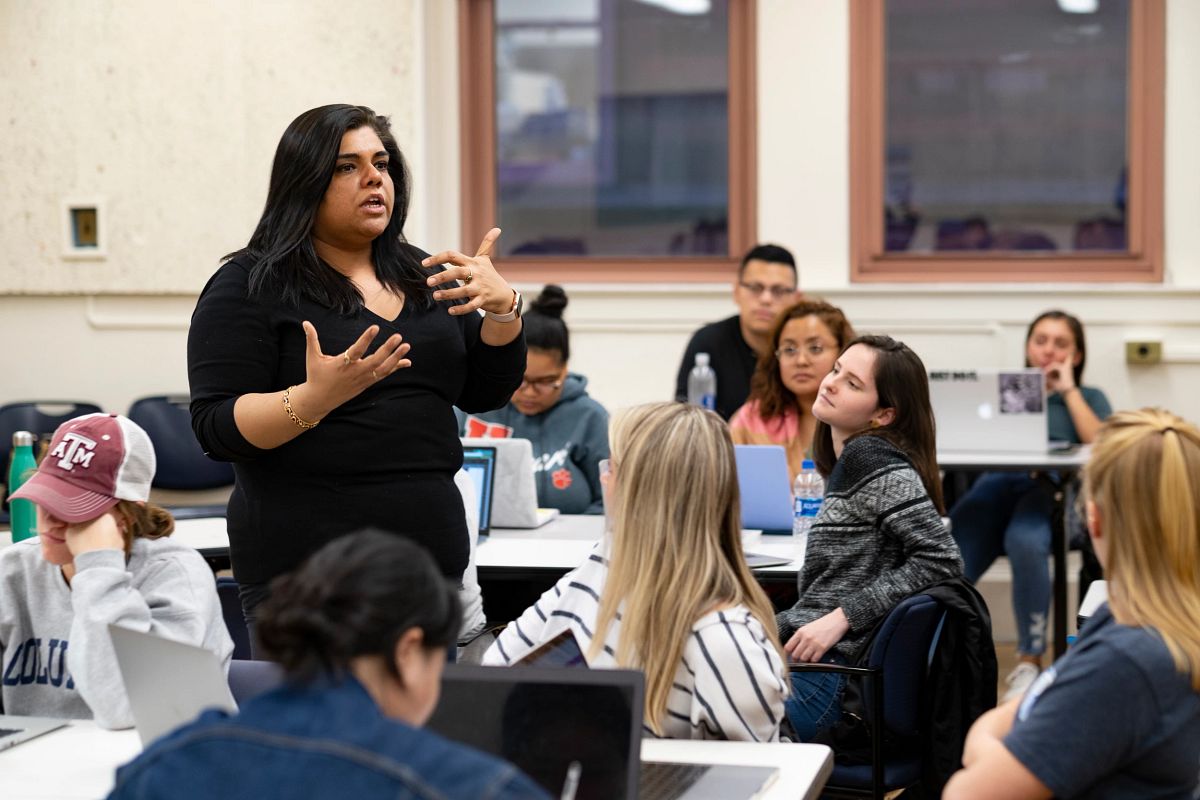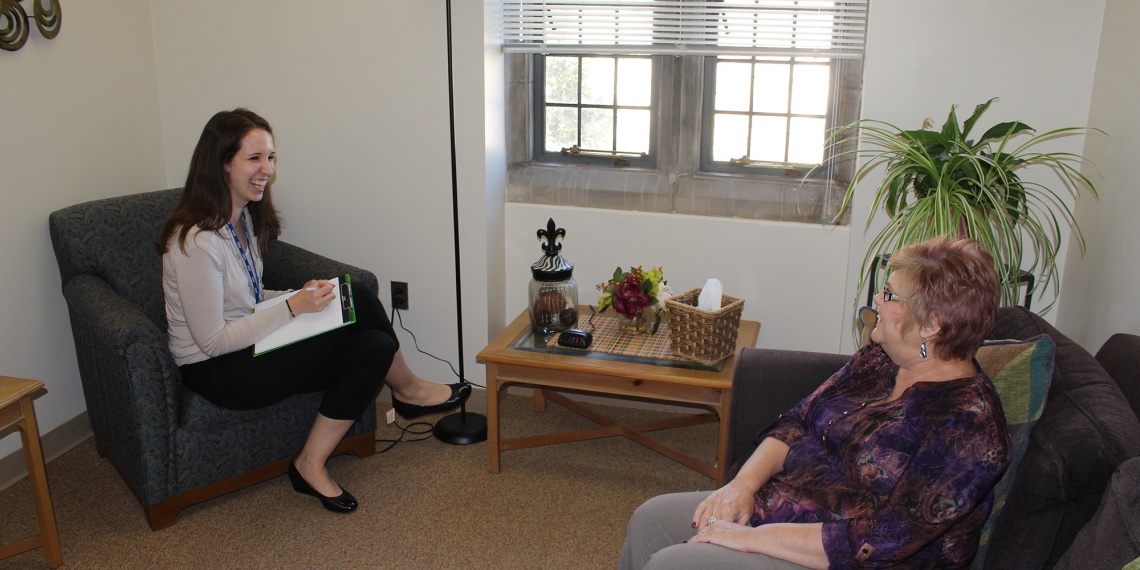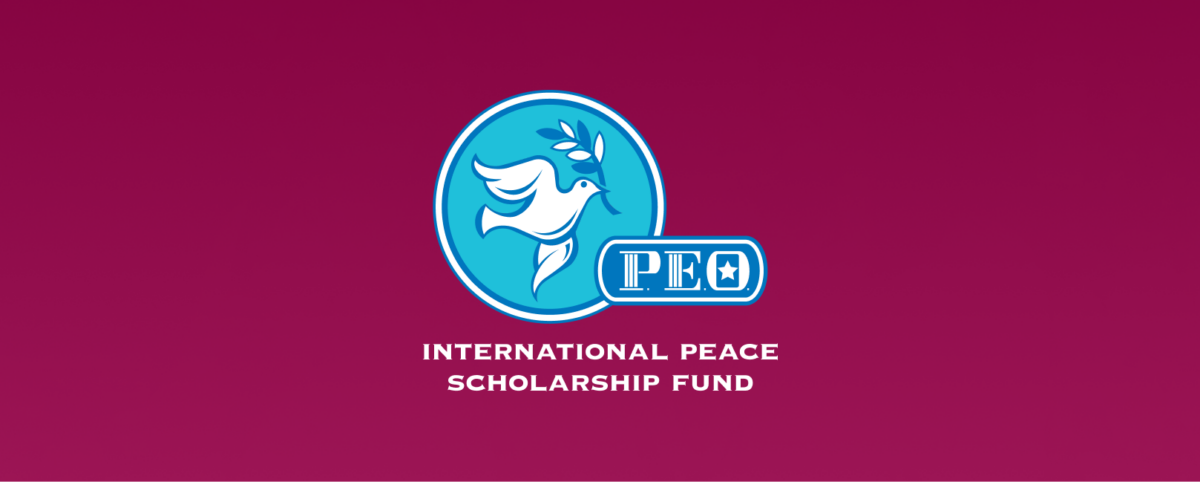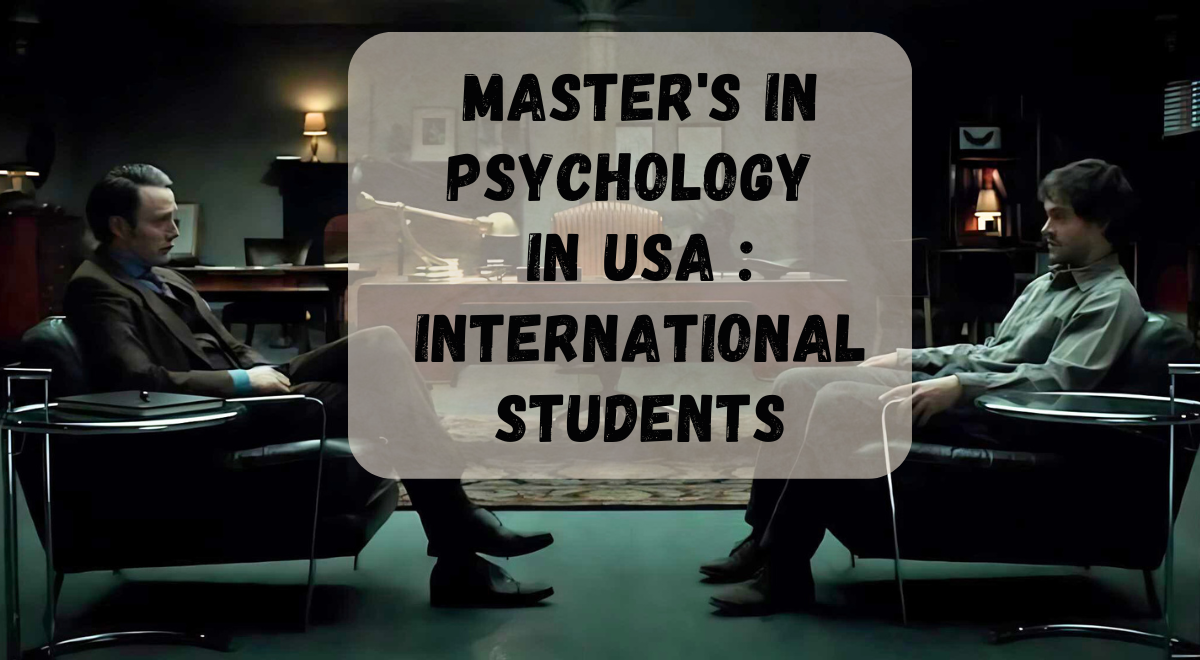Are you considering pursuing a Master's in Psychology in the United States? You're making a smart move! The field of psychology is booming, and studying in the U.S. can open doors to incredible opportunities. Let's dive into everything you need to know, from the growing demand for psychologists to the best programs, costs, scholarships, and more.
i. Psychology and Its Growing Demand
Psychology isn't just about lying on a couch and talking about your feelings anymore—it's a dynamic and diverse field that's becoming increasingly essential in our complex world. Whether it's in healthcare, education, business, or technology, understanding human behavior is key to addressing many of today's challenges.
Let's take an example, if you follow English TV/series there will always be a role of a psychiatrist who takes a bunch of fat money just to hear from patients! Seems really easy right? Just kidding, the fact is that the demand for psychiatrists is growing day by day in a country with a good economy like the US.
Did you know?
- According to the U.S. Bureau of Labor Statistics (BLS), employment for psychologists is projected to grow 14% from 2020 to 2030, which is much faster than the average for all occupations.
- Mental health awareness has surged globally, especially in the wake of the COVID-19 pandemic, leading to increased demand for qualified mental health professionals.
- Industrial-organizational psychologists are in high demand, with an expected growth rate of 13%, as companies recognize the importance of employee well-being and organizational efficiency.
By pursuing a Master's in Psychology, you're positioning yourself at the forefront of a field that's not only rewarding but also critical to societal well-being.
ii. Master's in Psychology in the U.S.
Choosing to study psychology in the U.S. comes with a host of benefits. The country boasts some of the world's top universities, offering cutting-edge programs that combine theoretical knowledge with practical experience.
What makes U.S. programs stand out?
- Diverse Specializations: You can tailor your studies to your interests, with specializations ranging from Clinical Psychology and Cognitive Neuroscience to Sports Psychology and Forensic Psychology.
- Research Opportunities: U.S. universities are known for their robust research facilities. You'll have the chance to work alongside leading experts on groundbreaking studies.
- Practical Experience: Many programs incorporate internships and practicum experiences, giving you hands-on experience in real-world settings.
- Networking: Studying in the U.S. connects you with a global network of professionals and alumni, opening doors to future career opportunities.

Program Structure:
Most Master's programs in psychology in the U.S. take 2 years to complete and typically require around 36-60 credit hours. The curriculum usually includes a mix of core courses, electives, research projects, and internships.
Admission Requirements:
- Bachelor's Degree: Preferably in psychology or a related field.
- GPA: Most programs look for a minimum GPA of 3.0.
- GRE Scores: Some programs require GRE scores, though many are moving away from this requirement.
- Letters of Recommendation: Usually 2-3 letters from academic or professional references.
- Statement of Purpose: Detailing your interests and career goals.
- English Proficiency: TOEFL or IELTS scores for non-native English speakers.

iii. Expenses of Master's Program
Let's talk numbers. Understanding financial commitment is crucial when planning your studies abroad.
Tuition Costs:
- Public Universities: Range from $15,000 to $30,000 per year.
- Private Universities: Can range from $25,000 to $50,000 per year.
Living Expenses:
- Housing: Depending on the city, expect to pay between $8,000 to $15,000 per year.
- Food: Budget around $3,000 to $5,000 annually.
- Transportation: Public transport can cost $500 to $1,200 per year.
- Health Insurance: Usually $1,500 to $2,500 per year.
- Books and Supplies: Approximately $1,000 to $2,000 annually.
- Miscellaneous Expenses: Allocate about $2,000 to $3,000 per year for personal expenses.
Total Estimated Annual Cost:
- Public University: $30,000 to $50,000.
- Private University: $40,000 to $70,000.
Tips to Manage Expenses:
- Scholarships and Grants: Many universities offer financial aid specifically for international students (more on that later).
- Assistantships: Positions like teaching or research assistants can waive tuition fees and provide a stipend.
- Part-time Work: International students can work up to 20 hours per week on campus during the semester.
- Budgeting: Living in affordable cities and sharing accommodations can significantly reduce costs.

iv. Master's vs. PhD in Psychology
Deciding between a Master's and a PhD depends on your career goals, time commitment, and interest in research.
Master's Degree:
- Duration: 2 years.
- Focus: Provides foundational knowledge and practical skills.
- Career Opportunities:
- Mental health counselor
- School psychologist
- Human resources specialist
- Market researcher
- Social services manager
- Pros:
- Shorter time commitment.
- Quicker entry into the workforce.
- Flexibility to switch fields or specialize further.
- Cons:
- Some positions (like licensed clinical psychologist) may require a doctorate.
- You may have lower earning potential than those with a PhD.
PhD Degree:
- Duration: 5-7 years.
- Focus: In-depth research, academic scholarship, and advanced clinical training.
- Career Opportunities:
- Licensed clinical psychologist
- University professor
- Research scientist
- Consultant
- Pros:
- Access to higher-level positions.
- Opportunity to contribute original research to the field.
- Higher earning potential.
- Cons:
- Significant time and financial commitment.
- Highly competitive programs.
- Intense focus on research, which may not appeal to everyone.
So, which should you choose?
- If you're eager to start working and apply psychological principles in various settings, a Master's is a great choice.
- If you're passionate about research, want to teach at the university level, or aim for specialized clinical roles, consider pursuing a PhD.
Remember, you can always start with a Master's and decide later if a PhD aligns with your evolving career aspirations.
v. Top 10 Master's Programs in Psychology in the U.S.
Choosing the right program can make all the difference. Here's a rundown of ten top-notch Master's programs across the U.S. that offer exceptional education and opportunities for international students.

1. Stanford University
Location: Stanford, California
Program Highlights:
- Specializations: Clinical Psychology, Cognitive Psychology, Social Psychology.
- Faculty: Learn from world-renowned professors actively engaged in groundbreaking research.
- Research Opportunities: Access to state-of-the-art labs like the Stanford Center for Cognitive and Neurobiological Imaging.
- Unique Features: Emphasis on interdisciplinary studies, allowing you to take courses across different departments.
- Career Support: Strong alumni network and career services to help you land top positions post-graduation.
Why Choose Stanford? If you're looking for a program that combines great academics with innovative research opportunities, Stanford is a fantastic choice. Plus, the beautiful campus and proximity to Silicon Valley offer unique opportunities for collaboration and networking.
2. Harvard University
Location: Cambridge, Massachusetts
Program Highlights:
- Specializations: Clinical Psychology, Developmental Psychology, Experimental Psychopathology.
- Faculty: Study under leading experts who are shaping the future of psychological research and practice.
- Research Opportunities: Engage in diverse research projects through facilities like the Harvard Center for Brain Science.
- Clinical Experience: Opportunities to gain hands-on experience through partnerships with hospitals and clinics.
- Networking: Join a vast network of professionals and alumni influencing various sectors worldwide.
Why Choose Harvard? Harvard offers unparalleled resources and a prestigious platform to launch your career. The program balances theoretical knowledge with practical experience, preparing you for a wide array of career paths.
3. University of California, Berkeley
Location: Berkeley, California
Program Highlights:
- Specializations: Behavioral Neuroscience, Social-Personality Psychology, Clinical Science.
- Faculty: Collaborate with distinguished scholars known for their contributions to psychology.
- Research Opportunities: Access to cutting-edge research facilities and interdisciplinary projects.
- Diversity and Inclusion: Strong commitment to fostering a diverse and inclusive academic environment.
- Location Benefits: Situated in the vibrant San Francisco Bay Area, offering rich cultural experiences and professional opportunities.
Why Choose UC Berkeley? UC Berkeley combines academic excellence with a socially conscious approach, encouraging students to apply psychological principles to address real-world issues.

4. Yale University
Location: New Haven, Connecticut
Program Highlights:
- Specializations: Cognitive Psychology, Clinical Psychology, Neuroscience.
- Faculty: Learn from leading researchers and clinicians dedicated to advancing psychological science.
- Research Opportunities: Participate in innovative studies at centers like the Yale Cognitive Science Program.
- Interdisciplinary Approach: Encourages collaboration across departments, enriching your educational experience.
- Community Engagement: Opportunities to engage with local communities through outreach and applied projects.
Why Choose Yale? Yale's program is ideal if you're seeking a comprehensive education that blends research, theory, and practical application, all within a supportive and collaborative environment.
5. University of Michigan
Location: Ann Arbor, Michigan
Program Highlights:
- Specializations: Developmental Psychology, Social Psychology, Clinical Science.
- Faculty: Work alongside accomplished scholars with a track record of impactful research.
- Research Opportunities: Engage in diverse projects through institutes like the Institute for Social Research.
- Supportive Environment: Known for fostering a collaborative and inclusive atmosphere for students.
- Affordable Living: Ann Arbor offers a lower cost of living compared to coastal cities without sacrificing cultural richness.
Why Choose the University of Michigan? This program offers a balance of rigorous academics and a supportive community, making it a great choice for students looking to excel in both research and practice.

6. Columbia University
Location: New York City, New York
Program Highlights:
- Specializations: Clinical Psychology, Organizational Psychology, Cognitive Neuroscience.
- Faculty: Learn from experts actively involved in cutting-edge research and consultancy.
- Urban Advantage: The NYC location provides access to diverse clinical settings and professional opportunities.
- Networking: Opportunities to connect with professionals across various industries in one of the world's most dynamic cities.
- Flexible Curriculum: Allows you to tailor your studies to your specific interests and career goals.
Why Choose Columbia? If you thrive in an urban environment and are looking for diverse experiences and networking opportunities, Columbia's program offers all that and more.
7. University of California, Los Angeles (UCLA)
Location: Los Angeles, California
Program Highlights:
- Specializations: Health Psychology, Behavioral Neuroscience, Social Psychology.
- Faculty: Study under leading figures who are advancing psychological research and practice.
- Research Opportunities: Access to comprehensive research facilities and participation in impactful studies.
- Cultural Diversity: Benefit from studying in a multicultural city that offers a wealth of perspectives and experiences.
- Career Prospects: Strong connections with healthcare facilities, tech companies, and educational institutions in the LA area.
Why Choose UCLA? UCLA offers a dynamic and diverse learning environment with abundant opportunities for research, clinical experience, and professional development.
8. Northwestern University
Location: Evanston, Illinois
Program Highlights:
- Specializations: Counseling Psychology, Cognitive Psychology, Industrial-Organizational Psychology.
- Faculty: Collaborate with professors renowned for their research and contributions to psychology.
- Research Opportunities: Engage in interdisciplinary projects through centers like the Cognitive Neurology and Alzheimer's Disease Center.
- Practical Experience: Strong emphasis on internships and practicums to prepare you for the workforce.
- Proximity to Chicago: Access to a vast array of professional and cultural opportunities in a major metropolitan area.
Why Choose Northwestern? Northwestern combines top-tier academics with real-world experience, making it ideal for students aiming for a balanced and comprehensive education.

9. Duke University
Location: Durham, North Carolina
Program Highlights:
- Specializations: Clinical Psychology, Developmental Psychology, Social Psychology.
- Faculty: Learn from distinguished scholars committed to mentorship and student success.
- Research Opportunities: Participate in innovative research through institutes like the Duke Institute for Brain Sciences.
- Collaborative Environment: Emphasis on collaborative learning and interdisciplinary research.
- Campus Life: Enjoy a vibrant campus culture with a strong sense of community.
Why Choose Duke? Duke offers a supportive and intellectually stimulating environment, perfect for students looking to engage deeply with their studies and research.
10. University of Pennsylvania
Location: Philadelphia, Pennsylvania
Program Highlights:
- Specializations: Positive Psychology, Clinical Psychology, Cognitive Neuroscience.
- Faculty: Study under pioneers of Positive Psychology and other leading areas.
- Innovative Programs: Home to the renowned Master of Applied Positive Psychology (MAPP) program.
- Research Opportunities: Engage in diverse research projects and benefit from UPenn's strong research infrastructure.
- Historical Significance: Study at one of the oldest and most prestigious universities in the U.S.
Why Choose UPenn? If you're interested in emerging fields like Positive Psychology, UPenn provides unique and forward-thinking programs that set you apart in the job market.
Choosing the Right Program for You:
Consider factors like program specialization, faculty interests, location, costs, and available resources when making your decision. Reach out to current students or alumni, attend virtual information sessions, and thoroughly research each program to find the best fit for your goals and interests.
vi. Scholarships for International Students
Financing your education can be a major concern, but luckily, there are numerous scholarships available specifically for international students pursuing a Master's in Psychology in the U.S. Let's explore some of the top options:
1. Fulbright Foreign Student Program
Overview:
- What it Covers: Tuition, airfare, health insurance, and living expenses.
- Eligibility: International students from over 160 countries.
- Application Process: Apply through the Fulbright Commission/Foundation or U.S. Embassy in your home country.
- Benefits: Apart from financial support, you get access to cultural and professional enrichment programs.
Why Consider Fulbright? It's one of the most prestigious scholarships globally, offering comprehensive support and a strong alumni network.
:max_bytes(150000):strip_icc()/GettyImages-1609463-f85f772752124035a99819af988365e1.jpg)
2. Joint Japan/World Bank Graduate Scholarship Program
Overview:
- What it Covers: Tuition, monthly living stipend, round-trip airfare, and health insurance.
- Eligibility: Students from developing countries with professional experience in development-related fields.
- Applicable Universities: Includes several U.S. universities offering psychology programs.
- Commitment: Scholars must return to their home countries to contribute to development efforts.
Why Consider This Scholarship? It provides full funding and supports students committed to making a positive impact in their home countries.
3. AAUW International Fellowships
Overview:
- What it Covers: $18,000 for Master's programs.
- Eligibility: Women who are not U.S. citizens or permanent residents.
- Fields of Study: Open to all fields, including psychology.
- Selection Criteria: Academic achievement, professional potential, and commitment to improving the lives of women and girls.
4. Harvard University Scholarships
Overview:
- What it Covers: Varies; can include full or partial tuition waivers and stipends.
- Eligibility: Based on financial need and academic merit.
- Application Process: Submit a financial aid application alongside your program application.
- Additional Support: Access to research and teaching assistant positions for additional funding.

5. Stanford Knight-Hennessy Scholars
Overview:
- What it Covers: Full tuition, stipend for living expenses, and travel allowance.
- Eligibility: Open to all nationalities applying to any graduate program at Stanford.
- Selection Criteria: Demonstrated leadership, independence of thought, and civic mindset.
- Program Benefits: Leadership development programs, workshops, and mentorship opportunities.
6. The Rotary Foundation Global Grant Scholarships
Overview:
- What it Covers: Minimum of $30,000 for graduate-level coursework or research.
- Eligibility: Students pursuing studies in one of Rotary’s areas of focus, including peace and conflict prevention/resolution and disease prevention and treatment.
- Application Process: Apply through a local Rotary club in your home country.
- Community Engagement: Encourages scholars to participate in community service and engage with Rotary members.
7. Inlaks Shivdasani Foundation Scholarships
Overview:
- What it Covers: Up to $100,000 for tuition and living expenses.
- Eligibility: Indian citizens with excellent academic records and strong professional potential.
- Fields of Study: Open to various fields, including psychology.
- Application Process: Requires academic transcripts, letters of recommendation, and a statement of purpose.

8. PEO International Peace Scholarship
Overview:
- What it Covers: Up to $12,500 per year.
- Eligibility: Women from countries other than the U.S. and Canada pursuing graduate study in the U.S.
- Selection Criteria: Demonstrated need and academic excellence.
- Additional Support: Access to a supportive community of women dedicated to educational advancement.
9. American Psychological Association (APA) Scholarships
Overview:
- What it covers varies; it includes multiple grants and scholarships ranging from $1,000 to $5,000.
- Eligibility: Students enrolled in accredited psychology programs.
- Specific Awards: Includes the APF Queen-Nellie Evans Scholarship for minority students and the APF Graduate Student Scholarships.
- Application Process: Requires academic records, research proposals, and letters of recommendation.
10. University-Specific Scholarships and Assistantships
Overview:
- What it covers: It can range from partial to full tuition waivers and include stipends.
- Availability: Most universities offer scholarships and assistantships to international students based on merit and financial need.
- Types of Assistantships:
- Teaching Assistantships (TA): Assist in teaching undergraduate courses.
- Research Assistantships (RA): Work on faculty-led research projects.
- Graduate Assistantships (GA): Provide administrative support within departments.

vii. FAQs
1. Can I work while studying for my Master's in Psychology in the U.S.?
- Answer: Yes, as an international student on an F-1 visa, you're allowed to work up to 20 hours per week on-campus during the academic year and full-time during breaks. Additionally, you can participate in Curricular Practical Training (CPT) and Optional Practical Training (OPT) programs related to your field of study.
2. Do I need to take the GRE for admission to Master's programs?
- Answer: Requirements vary by university. While many programs traditionally required GRE scores, an increasing number are waiving this requirement or making it optional, especially in light of the COVID-19 pandemic. Always check the specific requirements of each program you're interested in.
3. What are the English proficiency requirements?
- Answer: Most universities require international students to submit TOEFL or IELTS scores. Typical minimum scores are TOEFL iBT 90 and IELTS 6.5, but these can vary. Some programs may also accept Duolingo English Test scores.
4. Can I become a licensed psychologist in the U.S. with just a Master's degree?
- Answer: Licensing requirements vary by state. In most cases, a PhD or PsyD is required to become a licensed clinical psychologist. However, with a Master's, you can pursue roles like a licensed counselor, therapist, or school psychologist, depending on additional certifications and state regulations.
5. How long does OPT last for psychology students?
- Answer: OPT allows you to work in the U.S. for up to 12 months after completing your degree. Unfortunately, psychology does not fall under the STEM category, so STEM OPT extensions are not typically available.
6. What is the application timeline for these programs?
- Answer: Application deadlines usually fall between December and March for programs starting in the fall semester. It's advisable to start preparing your application materials at least a year in advance.
7. Are online Master's programs in psychology available and credible?
- Answer: Yes, many reputable universities offer online Master's programs in psychology. Ensure that the program is accredited and meets the educational requirements for your intended career path.
8. How can I enhance my application to competitive programs?
- Answer: Focus on:
- Strong Academic Records: Maintain a high GPA.
- Relevant Experience: Gain experience through internships, volunteer work, or research assistant positions.
- Compelling Personal Statement: Clearly articulate your goals, interests, and why you're a good fit for the program.
- Recommendations: Secure strong letters of recommendation from professors or professionals who can attest to your capabilities.
Standardized Tests: If required, aim for high GRE and English proficiency scores.
